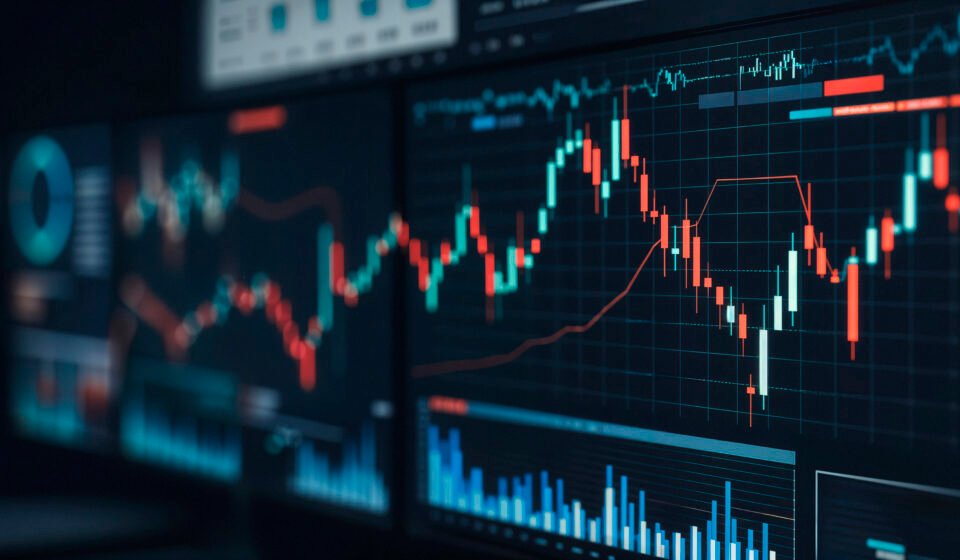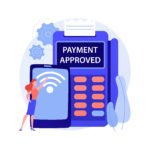
How To Start Forex Trading As A Beginner in 2025
Forex trading in 2025 is not just about charts and numbers—it’s about knowing how global markets move, how currencies react to news, and how you manage your own decisions under pressure. For beginners like I once was, the journey can feel overwhelming at first.
Table Of Content
- Why 2025 Is a Different Year for Forex Starters
- Building a Solid Foundation Before Your First Trade
- Key steps you should take early
- Choosing the Right Broker in 2025
- Setting Up Your Trading Account the Right Way
- Creating Your First Trading Plan
- Understanding Technical and Fundamental Analysis
- Risk Management Is More Important Than Profit Goals
- Practicing With Demo Accounts Before Going Live
- Managing Emotions While Trading
- Staying Updated With Market Changes
- Avoiding Common Beginner Mistakes
- Building Long-Term Success in Forex
- Conclusion
However, with the right approach, you can learn to navigate the market step-by-step without falling into common traps.
Why 2025 Is a Different Year for Forex Starters
In the past, beginners relied heavily on brokers and basic economic calendars. Now, real-time market analysis, AI tools, and instant news updates mean traders can react faster. We see major differences in how people start:
- Faster access to information thanks to integrated apps and online communities.
- Lower minimum capital requirements, allowing smaller initial investments.
- Better demo account systems, giving more realistic trading simulations.
The global economy is also more connected than ever. A single political decision or natural disaster can shift currency values within minutes, making it crucial for new traders to stay informed.
Building a Solid Foundation Before Your First Trade
Jumping into trades without preparation is like stepping onto a racetrack without knowing how to drive. Before even opening a trading account, I learned the importance of understanding core market factors.
Key steps you should take early:
- Learn how currency pairs work (major, minor, and exotic).
- Understand the concept of pips, spreads, and leverage.
- Follow economic news for at least two weeks before starting.
- Practice on a demo account before committing real money.
In the same way athletes train before competitions, traders need practice before risking funds. The more prepared you are, the fewer mistakes you’ll make.
Choosing the Right Broker in 2025
While all brokers promise good spreads and fast execution, not all of them are beginner-friendly. I’ve seen traders frustrated by hidden fees or poor platform interfaces, which can turn an exciting learning journey into a stressful one.
When reviewing brokers, pay attention to:
- Regulation and licensing — a non-negotiable safety net.
- Customer support — fast help can save you from costly errors.
- Platform ease-of-use — especially if you’re learning technical analysis.
- Deposit and withdrawal methods — convenience matters for both beginners and experienced traders.
Platform like Moon X were known for combining advanced analysis tools with easy onboarding, which can help new traders feel confident while still having room to grow.
Setting Up Your Trading Account the Right Way
After selecting a broker, the next step is opening your account. While it’s straightforward, there are a few beginner mistakes to avoid. For example, some traders rush through verification or ignore choosing the right account type.
Here’s how to approach it:
- Select the account type that matches your goals (micro, standard, or professional).
- Verify your identity to ensure smooth deposits and withdrawals.
- Fund your account with an amount you’re willing to lose at first—think of it as tuition for learning.
- Set your leverage carefully — beginners often go too high, risking large losses.
Creating Your First Trading Plan
A trading plan is not a fancy document; it’s your personal rulebook. Without it, you’ll find yourself making emotional decisions, which rarely end well.
Your plan should include:
- When you will trade — set specific hours that fit your lifestyle.
- Which currency pairs you’ll focus on — avoid too many at the start.
- Risk per trade — many beginners use 1–2% of their total capital.
- Exit strategy — define when you’ll close a trade, win or lose.
Even though market conditions change daily, sticking to a plan helps maintain consistency.
Understanding Technical and Fundamental Analysis
Forex traders use two main approaches: technical analysis (charts and patterns) and fundamental analysis (economic events and news). Both have value, and even as a beginner, you should understand the basics of each.
- Technical Analysis: Helps identify potential price movements based on historical data.
- Fundamental Analysis: Focuses on how political, economic, and social events affect currency values.
Similarly, experienced traders often combine both methods to confirm their decisions. For example, I might notice a bullish chart pattern and also see strong economic data supporting it.
Risk Management Is More Important Than Profit Goals
It’s tempting to focus only on profits, but experienced traders will tell you: survival comes first. Protecting your capital should be the priority, especially in your early days.
A few golden rules I learned:
- Always use a stop-loss order to limit losses.
- Never risk more than 2% of your capital on a single trade.
- Keep a trading journal to track mistakes and improvements.
In particular, knowing when to walk away after a losing streak is a skill that saves both money and mental energy.
Practicing With Demo Accounts Before Going Live
Before my first real trade, I spent weeks using a demo account. This allowed me to get comfortable with order types, market volatility, and my broker’s platform.
Benefits of demo trading:
- Builds confidence without financial risk.
- Lets you test your strategy in real-time.
- Helps you adapt to platform tools and features.
Still, demo trading doesn’t fully prepare you for the emotions of real money trading. The psychological shift when your own funds are at stake is something no simulation can match.
Read Also:- What Is a Bitcoin Calculator and How Does It Work?
Managing Emotions While Trading
Many beginners underestimate the emotional side of trading. Fear can make you exit too early; greed can make you stay too long. I’ve seen people abandon well-thought-out plans after just one loss.
To manage emotions effectively:
- Avoid overtrading after a loss.
- Stick to your plan regardless of short-term fluctuations.
- Take breaks to clear your head during stressful sessions.
Obviously, discipline is something that grows over time, but being aware of emotional triggers from day one gives you a huge advantage.
Staying Updated With Market Changes
Forex markets are influenced by countless factors, from central bank decisions to geopolitical tensions. Keeping up-to-date ensures you’re not caught off-guard by sudden price movements.
Useful habits include:
- Following economic calendars.
- Reading daily market analysis reports.
- Tracking social media accounts of reliable analysts.
Eventually, you’ll develop the ability to connect news events to potential market moves, allowing faster and more confident decisions.
Avoiding Common Beginner Mistakes
Over the years, I’ve noticed new traders often repeat the same errors:
- Using high leverage without understanding the risk.
- Trading without a stop-loss.
- Ignoring position sizing rules.
- Following “hot tips” without verification.
In comparison to seasoned traders, beginners often chase quick wins instead of focusing on sustainable growth. Avoiding these traps puts you ahead of many first-year traders.
Building Long-Term Success in Forex
Short-term wins feel great, but the real skill is consistency. I’ve learned that patience, discipline, and adaptability are what separate long-term traders from those who quit within months.
Focus on:
- Constantly refining your strategy.
- Learning from both wins and losses.
- Keeping your risk management strict, no matter how confident you feel.
In spite of market uncertainties, disciplined traders who keep learning often see steady improvement year after year.
Conclusion
Starting forex trading as a beginner in 2025 is both exciting and challenging. While technology and resources have made it more accessible than ever, the principles of success remain the same: preparation, discipline, and patience. With the right broker, a clear plan, and strong risk management, you can avoid costly mistakes and gradually build your skills.
The journey won’t be without setbacks, but every trade—win or lose—teaches you something valuable. Keep learning, stay disciplined, and you’ll have a strong foundation for long-term success in the forex world.




